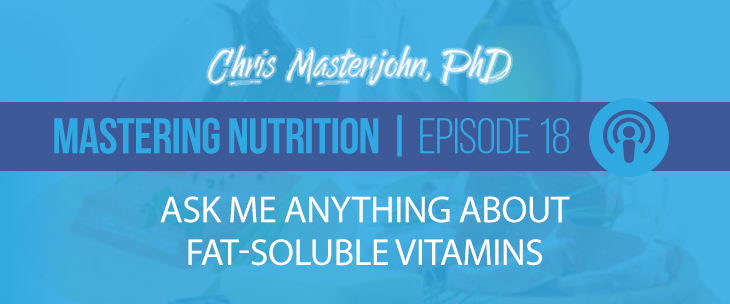This past Wednesday, we all showed up live on Facebook so you could ask me anything about fat-soluble vitamins. Here’s the video, and the audio recording as a podcast. If you love these Facebook Live episodes, make sure to show up at the next one: Saturday, July 9, 2:00 PM Eastern time the theme will …


